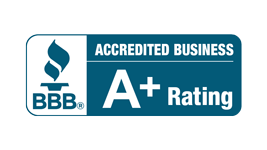If you have filed for bankruptcy. Are you curious about what you can not do after filing bankruptcy in Cleveland, Ohio? Here are some restrictions that apply to you.
You Cannot Neglect Your Alimony & Child Support Obligations After Chapter 7
Alimony and child support payments are considered priority debts under bankruptcy law, meaning they take precedence over other debts. This means that even if you successfully eliminate your credit card or medical debt through Chapter 7 bankruptcy, you are still legally obligated to fulfill your financial obligations towards your former spouse or children.
When filing for Chapter 7 bankruptcy, disclose all information about your alimony and child support payments to the court. Failure to do so can result in serious consequences, including the denial of your bankruptcy discharge or even legal penalties.
You Cannot Ignore Student Loans After Filing Bankruptcy
Student loans cannot be discharged or forgiven through bankruptcy unless the borrower can prove undue hardship. Undue hardship is a difficult standard to meet and requires the debtor to demonstrate that repaying the student loans would impose an extreme financial burden that would persist for a significant portion of the repayment period. [1]

You Can Not Eliminate Most Tax Debts After Filing Bankruptcy
- Public policy: Allowing individuals to discharge tax debts easily through bankruptcy would undermine the ability of the government to collect necessary funds.
- Prioritizing governmental claims: The government has the power to place tax debts at a higher priority than other types of debts. This means that if a debtor's assets are liquidated in bankruptcy, the government's claims for unpaid taxes will typically be satisfied before other creditors.
- Trust fund taxes: Since these funds are considered a trust for the government, they are treated as non-dischargeable in bankruptcy.
- Fraud or evasion: The government can challenge the dischargeability of tax debts if it can prove fraudulent or dishonest intent.
You Can Not Conceal Assets
It is illegal to conceal or transfer assets with the intent to defraud creditors after filing for bankruptcy. When an individual files for bankruptcy, they are required to provide a full and accurate disclosure of their assets, income, debts, and financial information. The bankruptcy trustee appointed to oversee the case has the duty to identify and collect any non-exempt assets to distribute to creditors.
If a debtor is found to have intentionally concealed or transferred assets in an effort to keep them hidden from creditors or the bankruptcy court, it can lead to severe consequences. These may include the denial of a discharge of debts, the dismissal of the bankruptcy case, or even criminal charges for fraud.

You Can Not Incur Debt with the Intent to Discharge
Attempting to discharge debt intentionally incurred is considered fraud under bankruptcy laws. It can result in severe penalties, including fines, imprisonment, and a tarnished credit history that can have long-lasting consequences for an individual’s financial health.
Intentionally incurring debt with the aim of discharging it is detrimental to one’s personal integrity and financial well-being. It erodes trust in the financial system and damages one’s reputation within the community. It may also affect future financial opportunities, such as obtaining loans, securing housing, or even finding gainful employment.
You Can Not Repeat the Bankruptcy Process Too Soon
If someone previously filed for Chapter 7 bankruptcy, they must wait at least eight years before they can file for the same chapter again. This restriction prevents individuals from taking advantage of the legal process by repeatedly discharging their debts and starting anew.
It allows time for individuals to learn from their mistakes, develop better financial habits, and seek alternative solutions before resorting to bankruptcy.
If an individual has filed for Chapter 13 bankruptcy in the past, they must wait a certain period before being eligible to file for the same chapter again. The waiting period is usually two years. Chapter 13 bankruptcy involves a repayment plan, allowing individuals to pay off their debts gradually.
The restriction on filing for Chapter 13 bankruptcy sooner than the specified waiting period ensures that individuals have ample time to fulfill their repayment obligations while preventing them from abusing the system by repeatedly seeking similar relief.
By knowing what you can and cannot do after filing for bankruptcy, you can make informed decisions and plan for your financial future.
Contact our expert bankruptcy lawyers at Richard West Law Office today to learn more about the post-bankruptcy restrictions and get guidance on how to move forward. Take control of your financial future now!
Source:
[1] Bucci, S. (2022, November 14). Which debts can’t be discharged in bankruptcy? Bankrate. https://www.bankrate.com/personal-finance/debt/debts-discharged-in-bankruptcy/




